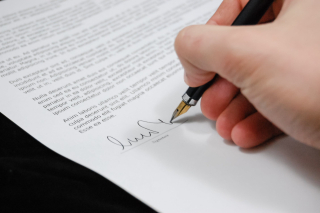 It’s understood that everyone needs a will. However, many people put it off. Don’t be one of those people. Your family will remember, and it won’t be a happy memory!
It’s understood that everyone needs a will. However, many people put it off. Don’t be one of those people. Your family will remember, and it won’t be a happy memory!
Celebrities aren’t the only ones who fail to plan for their passing. The difference is, their failures can become instructive for the general public. If we don’t have a will, only our family will know how much time, expense and stress occurs because of a failure to plan.
Merrill Lynch and the consulting firm Age Wave found in their recent survey that about 50% of study participants age 50 and older didn’t have a will.
The Minneapolis Star Tribune’s recent article, “How to get started on making a will,” reported that many people don’t care to talk with close family members about important financial topics, like their level of financial security, plans for living arrangements in retirement, inheritance or long-term care.
The Merrill Lynch/Age Wave report, “Family & Retirement: The Elephant in the Room,” explains that some of this is due to time constraints and that people say they’ll do it eventually.
However, it’s easy to get started. You can draft an ethical will, also known as a values statement or letter. Do this in the next few weeks or month. The thought is to capture for your immediate family, as well as your grandchildren and great grandchildren, what you want them to know about your values, what mattered to you in life, what traditions you hold dear and how you’d like the world to become a better place.
Creating an ethical will begins with a family conversation. Once you begin recording your values and discussing them with your family, it’s a short hop to discussions about your estate plan.
A great benefit of starting the dialog with an ethical will, is that there’s less pressure on the family and more time to become comfortable with the topic.
These discussions will lead you to finally meet with an estate planning lawyer to write your will.
However, don’t stop with a will. You also need a power of attorney and a medical power of attorney, so that a trusted family member or friend can make decisions on your behalf, if you should become incapacitated.
It may be easier, if you start with a discussion about values and your legacy. However, make sure to take the process to completion, so that your family is protected. You will have done the right thing.
Reference: Minneapolis Star Tribune (September 8, 2018) “How to get started on making a will”
 Houston Estate Planning and Elder Law Attorney Blog
Houston Estate Planning and Elder Law Attorney Blog

